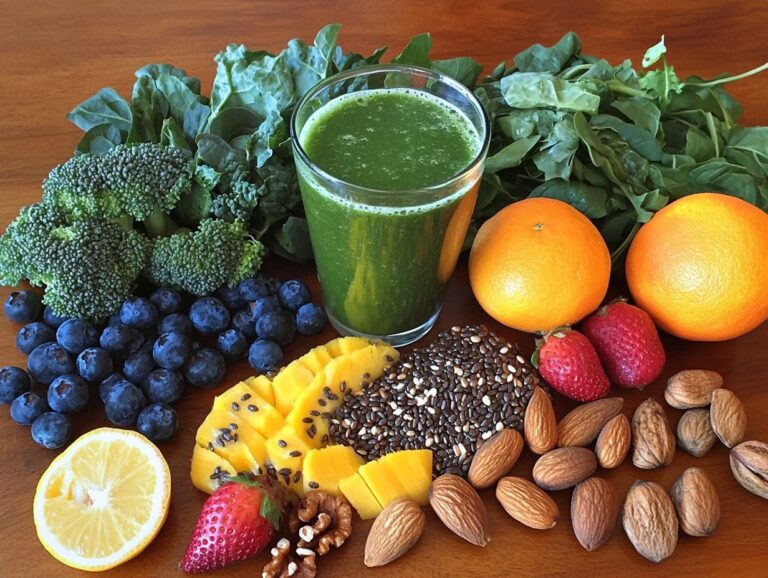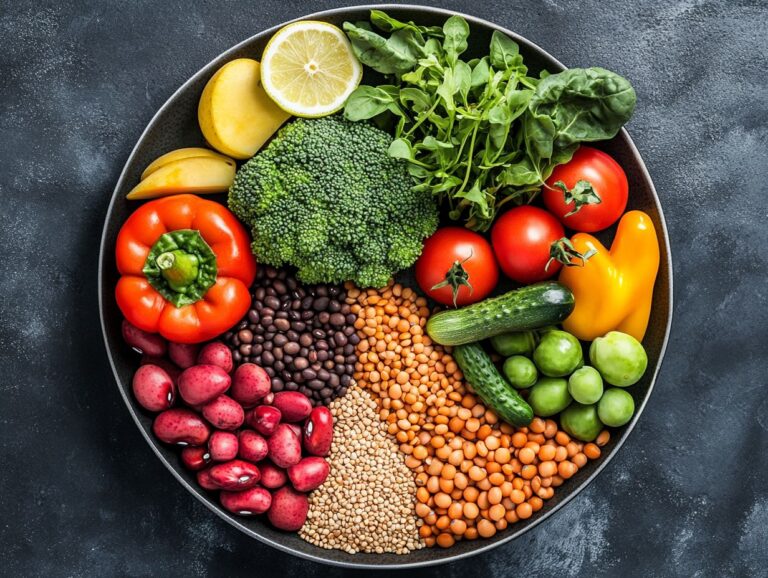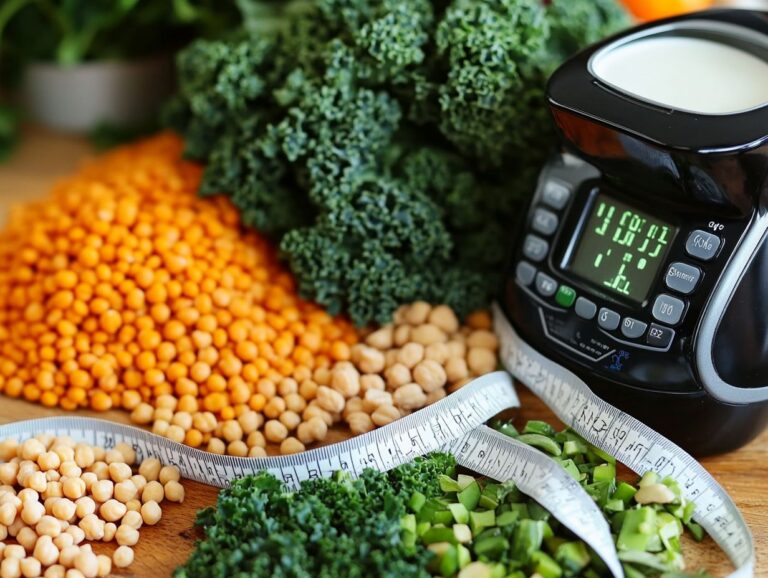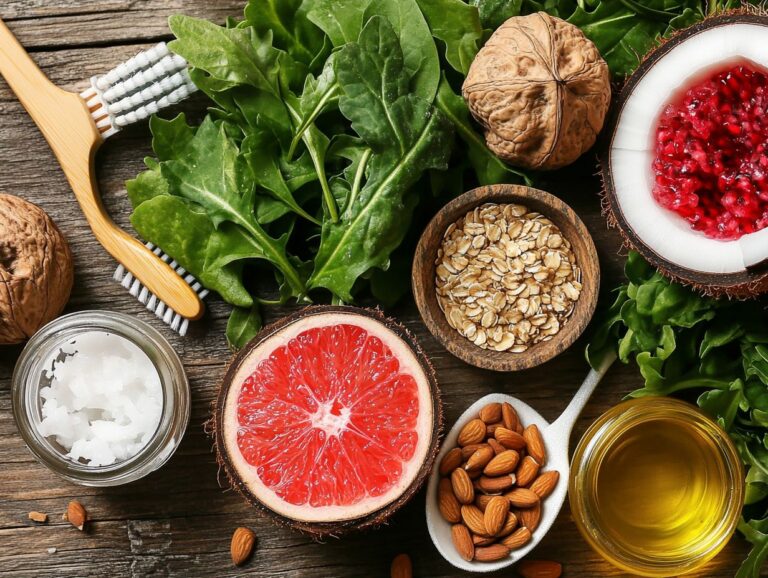Gastroesophageal reflux disease (GERD) is a challenging condition to manage and can lead to issues that range from minor daily heartburn to significant adverse effects on a person’s overall health. This article explores the causes, symptoms, and complications of GERD when left untreated. Additionally, it discusses how adopting a vegan diet, which emphasizes plant-based foods, can be beneficial, including which foods to avoid and which to embrace. The article also outlines lifestyle changes, natural remedies that may provide relief, including heartburn relief, when to seek medical treatment, and effective ways for GERD management.
Key Takeaways:
- A vegan diet can help manage GERD by avoiding dietary triggers like high-fat foods and including fiber-rich foods that promote healing and relief.
- Lifestyle changes such as eating slowly and managing stress can also improve GERD symptoms.
- Natural remedies like herbal teas and probiotics can be beneficial, but seeking medical treatment may be necessary for severe cases.
What Is GERD?
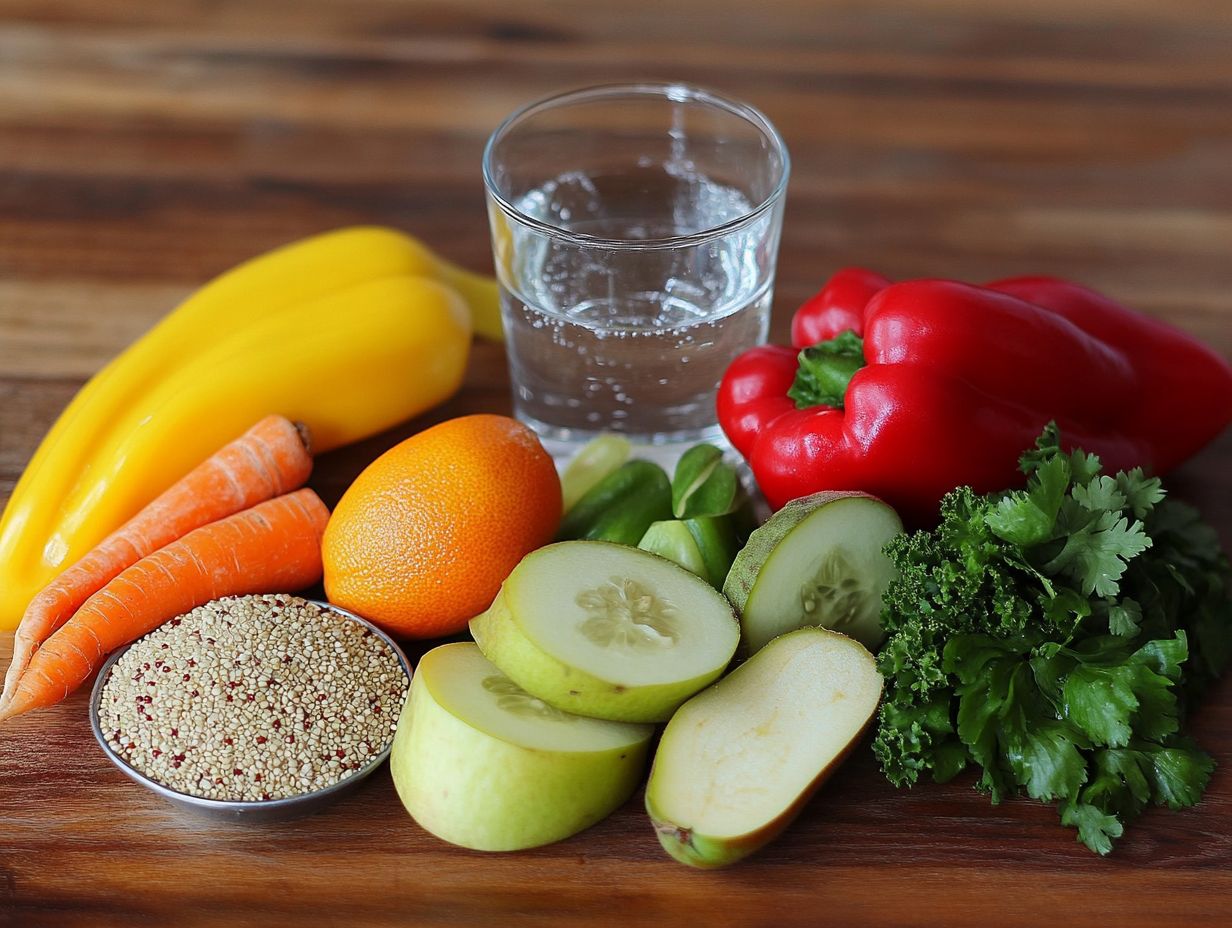
Gastroesophageal reflux disease (GERD) is a chronic condition characterized by the frequent backflow of gastric acid into the esophagus, causing acid reflux. This reflux can irritate the lining of the esophagus and lead to a range of painful symptoms that can significantly impact one’s quality of life.
GERD occurs when the lower esophageal sphincter—a band of muscle at the end of the esophagus—weakens or relaxes inappropriately, allowing stomach contents and hydrochloric acid (HCL) to flow back up into the esophagus. As a result, individuals may experience heartburn, inflammation of the esophagus, and other complications.
What Are the Causes of GERD?
Gastroesophageal reflux disease (GERD) has several causes, including high-fat foods, spicy foods, alcohol, obesity, and emotional stress, all of which contribute to the weakening of the lower esophageal sphincter.
Certain beverages, such as caffeinated drinks and carbonated sodas, can also increase acid secretion in the stomach, exacerbating symptoms of GERD.
Weight management is crucial, as excess body weight puts additional pressure on the abdomen, further impairing the function of the esophageal sphincter.
Individuals with high stress levels often report that anxiety worsens their acid reflux, leading to poor eating habits and changes in how the body digests food.
Understanding how these three factors—diet, weight, and stress—interconnect can help individuals with GERD better manage their condition through lifestyle changes and healthy eating.
What Are the Symptoms of GERD?
Gastroesophageal reflux disease (GERD) symptoms can vary significantly, but the most common ones include:
- Frequent heartburn
- Acid regurgitation
- Upper abdominal pain
These symptoms are often misdiagnosed as esophagitis and treated accordingly, or mistaken for a chronic cough that does not respond to treatment.
What Are the Complications of Untreated GERD?
Untreated gastroesophageal reflux disease (GERD) poses several risks, including esophageal damage, which can lead to Barrett’s esophagus and laryngitis. These conditions can have serious long-term effects on overall health.
Chronic GERD is characterized by persistent acid reflux and chronic acid reflux, which may worsen over time if not addressed, potentially leading to more severe reflux complications.
One common complication of GERD is strictures, or the narrowing of the esophagus, which can make swallowing difficult. Additionally, chronic inflammation of the esophagus due to acid exposure may increase the risk of developing esophageal cancer.
Given the potential for serious complications such as esophageal inflammation and the narrowing of the esophagogastric junction, early diagnosis and treatment of GERD are essential. Implementing lifestyle and dietary changes, along with medications for symptom management, is crucial in preventing GERD and its associated risks.
Discussing symptoms with a healthcare professional can help create individualized treatment plans that reduce complications and enhance quality of life.
How Can a Vegan Diet Help Manage GERD?
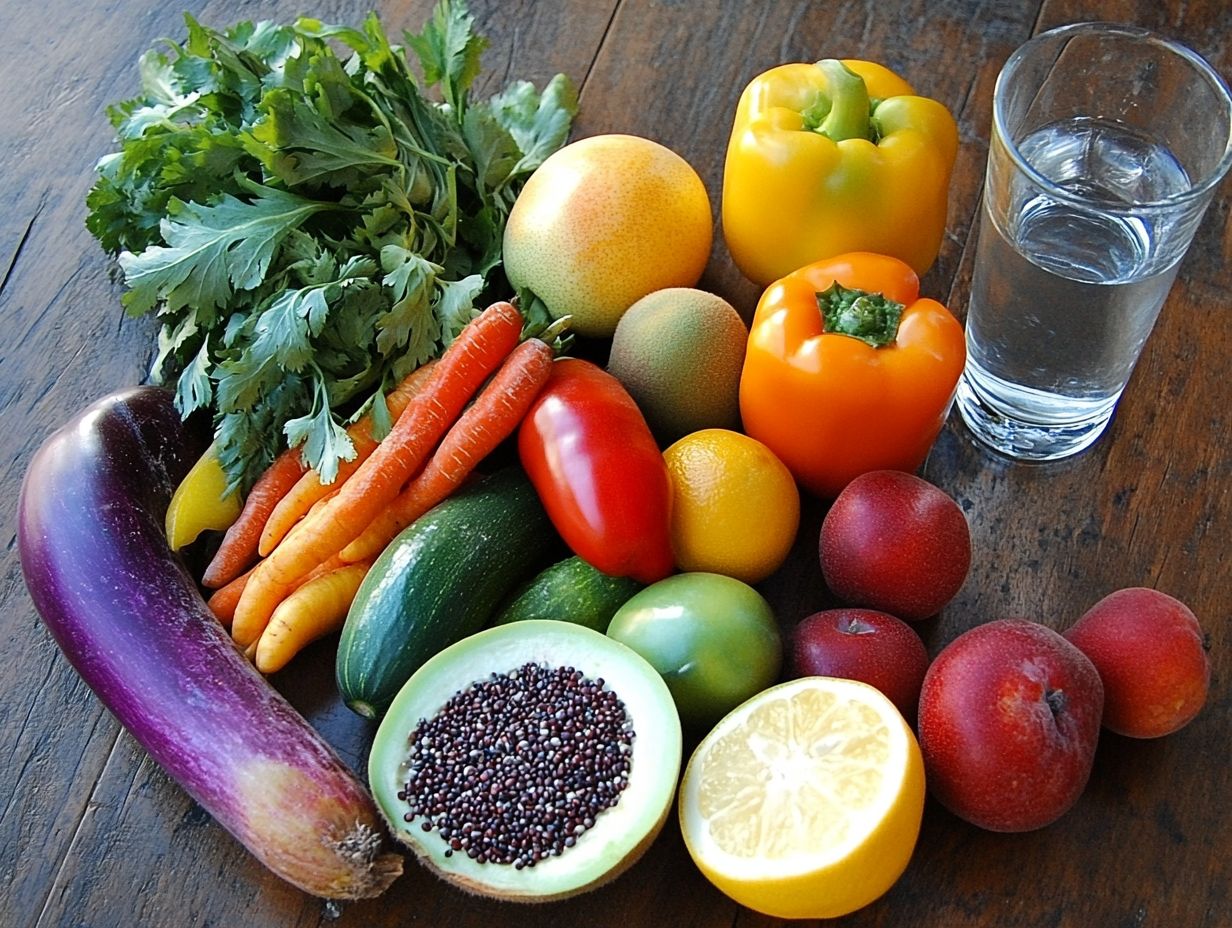
A vegan diet can help manage gastroesophageal reflux disease (GERD) due to its emphasis on plant-based foods, which are typically high in fiber and possess anti-inflammatory properties, thereby aiding digestive tract health.
These attributes help reduce symptoms and promote digestive health, supported by evidence-based dietary advice.
What Foods Should Be Avoided on a Vegan GERD Diet to Manage Inflammation of Esophagus?
A vegan GERD diet requires avoiding certain vegan foods that can trigger GERD symptoms. The most common culprits include high-fat foods, spicy foods, carbonated beverages, and alcohol.
According to the journal Gastroenterology Research and Practice, these foods are typical contributors to acid reflux and discomfort for individuals experiencing GERD symptoms. Caution should be exercised when consuming citrus fruits, tomato products, and garlic, as these can irritate the esophagus and increase acid production.
A balanced approach to food selection is essential for managing GERD symptoms and avoiding dietary restrictions. Incorporating lower-acid fruits like bananas and melons, as well as whole grains and non-citrus vegetables, can be soothing.
Additionally, limiting the intake of processed vegan foods that are high in fat and excessive spices can significantly enhance digestive health and provide GERD symptoms relief for those following a vegan lifestyle.
What Foods Should Be Included on a Vegan GERD Diet?
The healthiest foods for vegan diets designed to manage GERD include plant-based proteins, high-fiber foods, and nutrient-rich options that align with the principles of a healthy Mediterranean diet, offering nutritional benefits.
These foods not only provide essential nutrients but also help prevent acid reflux and support digestive system health. For instance, whole grains like quinoa and brown rice are rich in soluble fiber, which aids digestion and promotes a feeling of fullness, thereby reducing the risk of overeating.
Leafy green vegetables, such as spinach and kale, are high in antioxidants and low in acidity, making them beneficial for soothing the digestive tract. Healthy fats found in avocados and olives can also help reduce inflammation.
Including these foods in a vegan GERD diet will support overall wellness while effectively managing symptoms.
What Are Other Lifestyle Changes That Can Help Manage GERD and Improve Digestive Health?
Lifestyle changes, such as weight management and avoiding triggers, play a crucial role in the successful treatment of gastroesophageal reflux disease (GERD). Effective strategies include:
- Weight management
- Avoiding triggering factors
- Reducing emotional stress
All of these can help alleviate symptoms and improve overall digestive health.
What Are Some Tips for Eating Slowly and Mindfully?
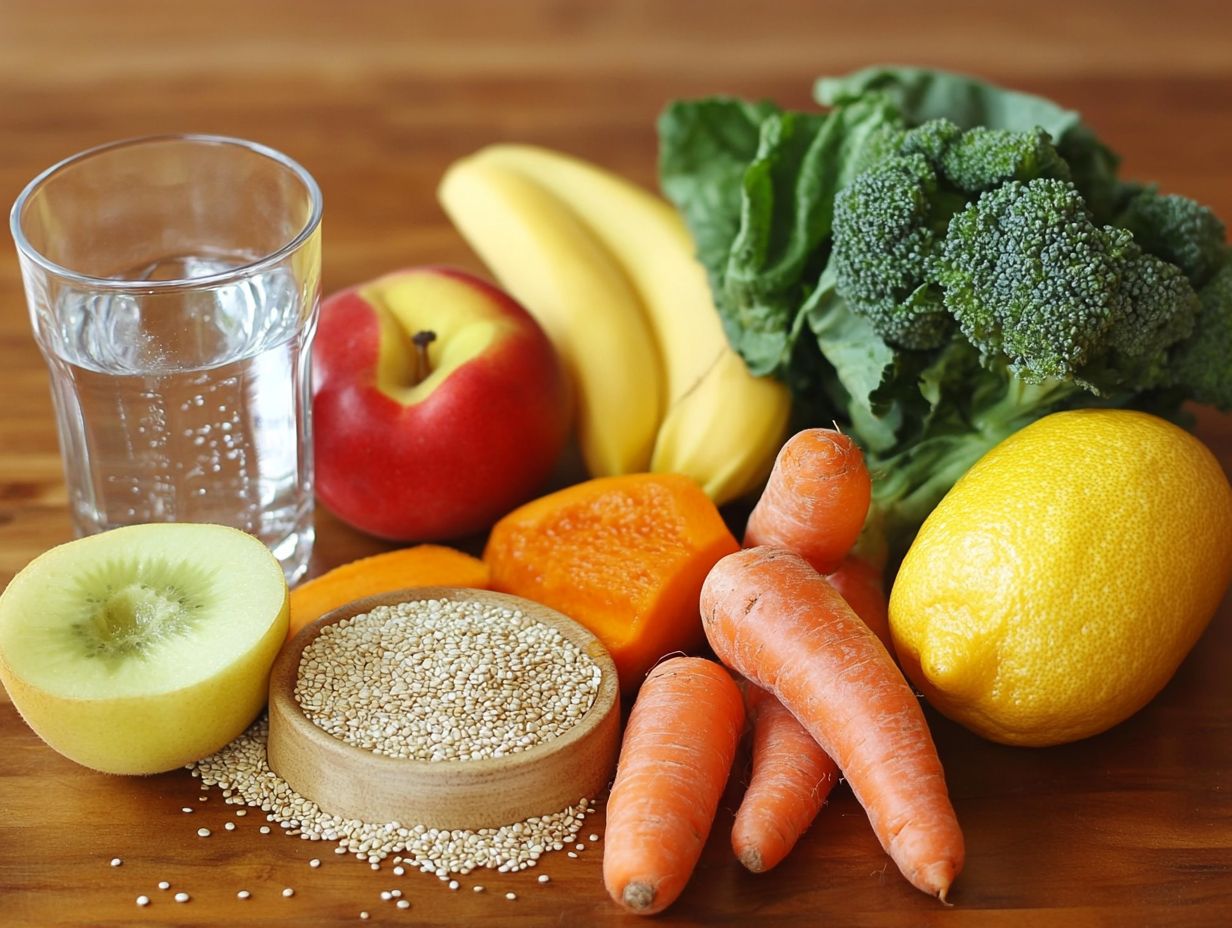
Mindful eating and eating slowly are effective strategies for individuals with gastroesophageal reflux disease (GERD) to promote a healthier digestive tract and alleviate heartburn.
By being present and attentive during meals—savoring flavors, recognizing hunger cues, and acknowledging when they are full—those with GERD may find it easier to avoid overeating, which is a common trigger for their symptoms.
Creating a calm and undistracted environment for meals enhances the eating experience and helps individuals with GERD better understand how different foods affect their bodies. Additionally, choosing easily digestible foods and taking small bites can help minimize discomfort.
Overall, practicing mindful eating can transform mealtime into a more enjoyable experience for those managing GERD.
How Can Stress Management Techniques Help with GERD and Weight Loss?
Effective stress management techniques can help alleviate GERD symptoms, as emotional stress is a well-known trigger for acid reflux and other gastrointestinal issues, thereby improving digestive health.
Studies have shown that patients who engage in mindfulness activities, such as meditation and deep-breathing exercises, experience significant reductions in GERD symptoms.
Additionally, practices like yoga and progressive muscle relaxation not only promote tranquility but also help regulate bodily functions, which can decrease acid production.
When these methods are incorporated into the daily routines of individuals suffering from GERD, they can achieve better management of stress and gastrointestinal discomfort, leading to a healthier lifestyle.
Understanding how different stress management techniques impact individual experiences with GERD can enable individuals with effective tools for managing their health.
What Are Some Natural Remedies for GERD and Healthy Lifestyle Options?
Natural remedies for gastroesophageal reflux disease (GERD) include ginger, herbal teas, probiotics, and antiacid medications.
These options can provide relief and support overall digestive health while helping to reduce uncomfortable symptoms.
What Are Some Herbal Teas That Can Help with GERD Symptoms and Inflammation of the Esophagus?
Certain herbal teas, such as ginger and chamomile, have been shown to alleviate GERD symptoms by soothing the digestive tract and reducing inflammation, making them excellent natural remedies for managing acid reflux.
Plus these well-known options, peppermint tea is often appreciated for its calming effects on the stomach; however, it should be consumed with caution, as it can aggravate symptoms in some individuals.
Slippery elm tea is recognized for its mucilage content, which forms a protective layer in the digestive tract, providing additional relief. Licorice root tea, known for its anti-inflammatory properties, is another beneficial choice that helps ease discomfort and supports overall digestive health.
Regularly incorporating these herbal infusions into one’s routine can create a soothing ritual that not only alleviates GERD symptoms but also promotes a healthier digestive system overall.
How Can Probiotics Help Improve Digestive Health and Manage GERD?
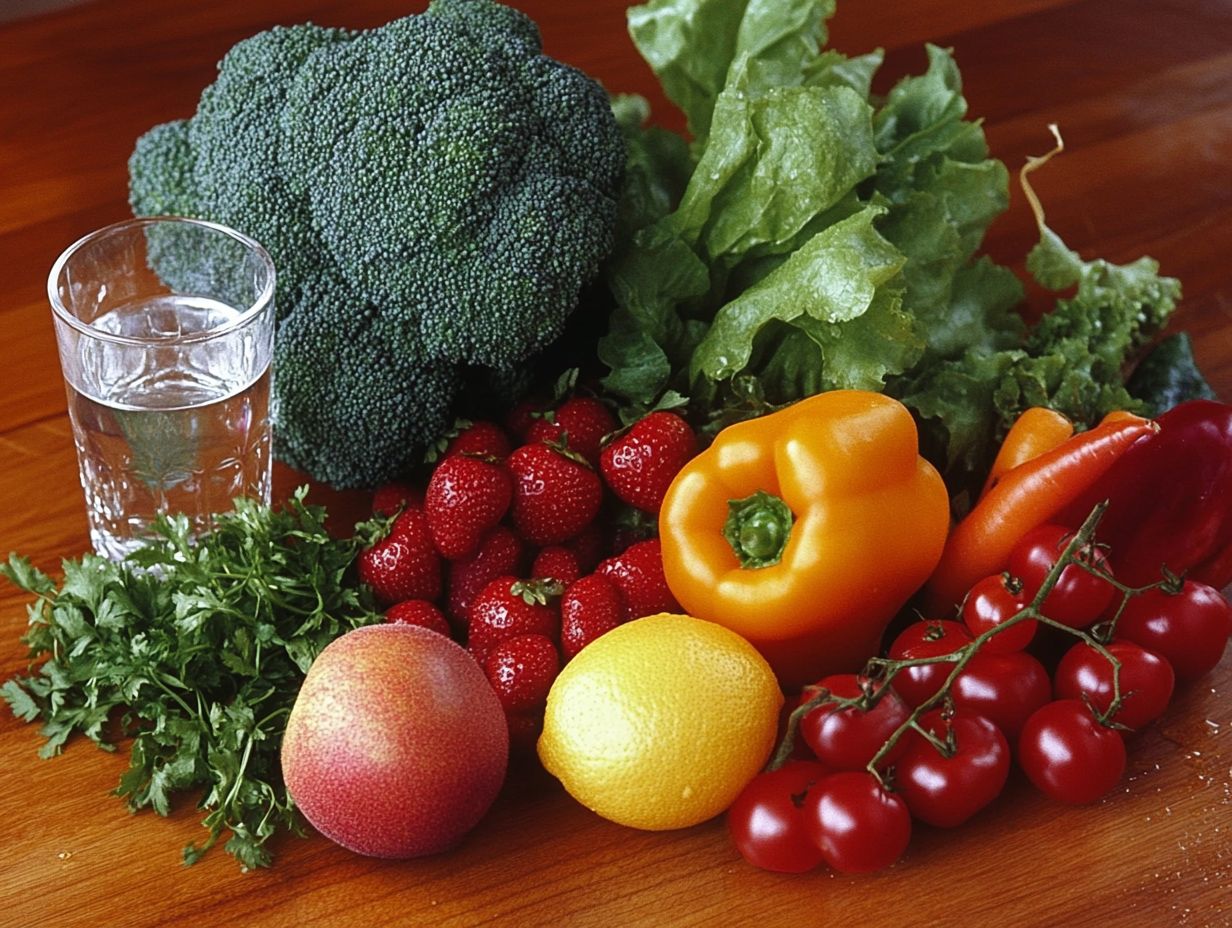
Probiotics are beneficial bacteria that play a crucial role in improving digestive health and can be effective in treating gastroesophageal reflux disease (GERD) by maintaining an optimal balance of gut flora. This balance may help reduce symptoms of GERD, such as heartburn and inflammation of the esophagus, and enhance overall quality of life.
These microorganisms contribute to a healthier digestive environment by aiding in the breakdown of food and ensuring that nutrients are absorbed properly, which can help alleviate gastrointestinal discomfort and support digestive tract health.
Probiotics can be introduced into the body in various ways. They are present in a range of foods, especially plant-based foods and fiber-rich foods, such as:
- yogurt
- kefir
- sauerkraut
- other fermented products
These can be consumed regularly. Additionally, probiotic supplements are readily available, providing an easy way for individuals to receive extra support for their digestive health and enhance GERD management through natural remedies.
Incorporating probiotics into daily meals can lead to significant improvements in digestion, help manage GERD symptoms effectively, and act as part of a healthy lifestyle and dietary recommendations.
When Should You Seek Medical Treatment for GERD?
You should seek medical treatment for gastroesophageal reflux disease (GERD) if you experience chronic acid reflux, suspect you may have esophagitis, experience daily heartburn, or find that over-the-counter antacid medications do not provide sufficient relief from your symptoms.
What Are Some Medications That Can Help Manage GERD?
Medications for gastroesophageal reflux disease (GERD) include antacids, proton pump inhibitors (PPIs), and H2 blockers, each offering different treatment options aimed at reducing gastric acid production and relieving GERD symptoms. They aim to lower acidity levels and provide heartburn relief.
Antacids work by neutralizing excess stomach acid, providing immediate relief from heartburn and other discomforts. Proton pump inhibitors prevent the stomach from producing acid altogether, alleviating symptoms and allowing time for the esophagus to heal. H2 blockers, such as famotidine, also reduce acid production but are generally not as effective as PPIs.
While these medications can be beneficial, they may have side effects, including headaches, diarrhea, and potential long-term complications from extended use. Therefore, patients should discuss these options with their healthcare provider to determine the best choice for their specific circumstances.
When Is Surgery Recommended for GERD?
Surgical treatment for gastroesophageal reflux disease (GERD) is reserved for the most severely affected individuals who do not respond to other treatment modalities, as well as for cases where reflux complications or esophageal damage pose a threat to life or well-being.
Candidates for surgery typically include patients with chronic heartburn, upper abdominal pain, or complications of GERD, such as esophagitis, esophageal strictures, or Barrett’s esophagus.
One of the primary surgical procedures for GERD treatment is fundoplication, in which the upper part of the stomach is wrapped around the lower esophagus to prevent acid reflux. An alternative procedure, known as LINX, utilizes magnetic beads to augment the lower esophageal sphincter.
Both surgical methods have proven effective in reducing symptoms and improving quality of life, making them essential options for individuals who do not achieve satisfactory relief from medications alone.
